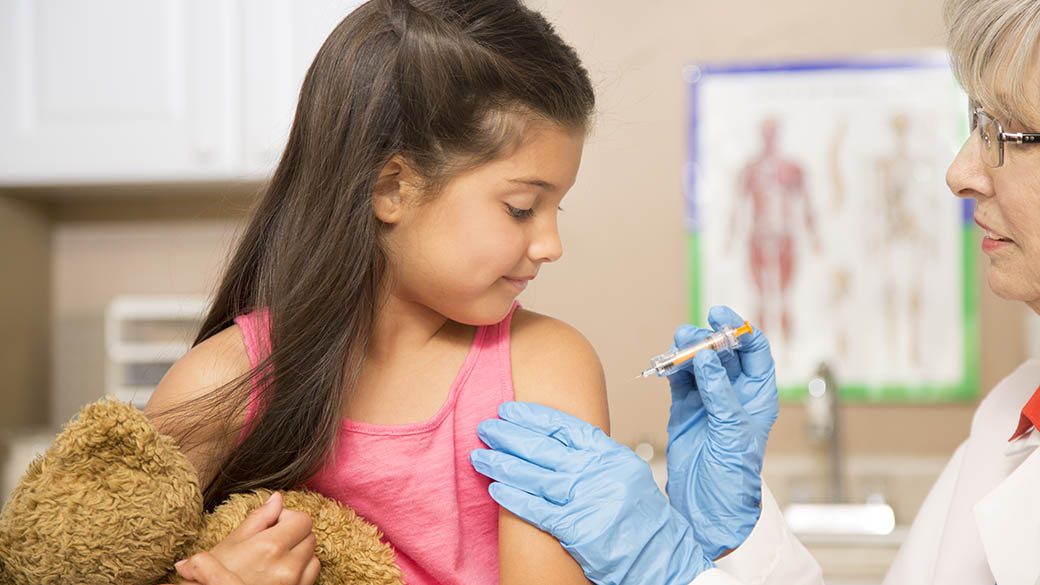
Vaccination is one of the most important parts of a baby’s health care. In 2025, parents need to follow the updated vaccination schedule to protect their child from serious diseases. This guide gives you simple and clear information about the latest baby vaccination plan.
Why Vaccination Is Important
Vaccines help protect babies from dangerous infections and diseases. They build immunity, which helps the baby’s body fight viruses and bacteria. Without vaccines, babies can become very sick or even face life-threatening conditions.
Benefits of Vaccination:
- Prevents harmful diseases
- Saves hospital costs
- Keeps other children safe
- Helps the baby grow healthy and strong
- Required for school admission later in life
Baby Vaccination Schedule in 2025
The vaccination schedule is based on the age of the baby. Each vaccine is given at the right time to make sure the baby is fully protected.
Birth
BCG (for tuberculosis)
Hepatitis B (1st dose)
Oral Polio Vaccine (OPV – 0 dose)
These are the first vaccines given right after birth or within the first few days.
6 Weeks (1.5 Months)
DTaP (1st dose) – Diphtheria, Tetanus, and Pertussis
IPV (1st dose) – Inactivated Polio Vaccine
Hib (1st dose) – Haemophilus Influenzae Type B
Hepatitis B (2nd dose)
Rotavirus (1st dose)
Pneumococcal (1st dose)
10 Weeks (2.5 Months)
DTaP (2nd dose)
IPV (2nd dose)
Hib (2nd dose)
Rotavirus (2nd dose)
Pneumococcal (2nd dose)
14 Weeks (3.5 Months)
DTaP (3rd dose)
IPV (3rd dose)
Hib (3rd dose)
Hepatitis B (3rd dose)
Pneumococcal (3rd dose)
6 Months
Influenza Vaccine (1st dose)
This is a seasonal flu vaccine. Your baby may need it every year.
9 Months
MMR (1st dose) – Measles, Mumps, Rubella
Typhoid Conjugate Vaccine (TCV)
Yellow Fever (in some countries)
12 Months (1 Year)
Hepatitis A (1st dose)
Chickenpox (Varicella – 1st dose)
Booster Dose of Pneumococcal (if recommended)
15 Months
MMR (2nd dose)
Hib Booster
Varicella (2nd dose)
18 Months (1.5 Years)
DTaP Booster (1st)
IPV Booster (1st)
Hepatitis A (2nd dose)
2 Years
Some countries offer a booster dose for typhoid or additional MMR dose, depending on health conditions.
4-6 Years
DTaP Booster (2nd)
IPV Booster (2nd)
MMR Booster (if needed)
Varicella Booster (if needed)
Extra Vaccines Based on Risk
Some babies may need extra vaccines if:
- They have weak immunity
- They travel to high-risk countries
- They are exposed to certain diseases
Ask your child’s doctor about these optional vaccines:
- Meningococcal vaccine
- Japanese Encephalitis vaccine
- COVID-19 (if recommended in your country)
Common Side Effects After Vaccination
It is normal for babies to have minor side effects after vaccination.
Mild Side Effects:
- Fever
- Swelling at the injection site
- Crying or irritability
- Sleepiness
These effects go away in 1–2 days. If symptoms become serious or last longer, consult a doctor.
Tips for Parents
- Always keep a vaccination card or record
- Do not delay vaccine dates
- Breastfeed to support the baby’s immunity
- Dress the baby in loose clothes on vaccination day
- Keep the baby calm during and after vaccination
Government and Free Vaccination Programs
Many countries offer free vaccines through government hospitals or health clinics. You can ask your local health department about:
- Free vaccine days
- Immunization cards
- Vaccine reminders by SMS or apps
FAQs About Baby Vaccination in 2025
1. What is the first vaccine a baby gets after birth?
The first vaccines after birth are BCG, Hepatitis B, and Oral Polio. These protect against tuberculosis, liver infection, and polio from the very start of life.
2. Is it safe to give many vaccines at one time?
Yes, it is safe. Giving multiple vaccines together is tested and approved. It helps protect the baby earlier and avoids extra visits to the clinic or hospital.
3. What if my baby misses a vaccine?
If a baby misses a vaccine, parents should visit the doctor as soon as possible. The doctor will give a catch-up plan to protect the baby quickly and safely.
4. Are there any free vaccination programs in 2025?
Yes, many countries provide free vaccination through public hospitals. Parents should check with their local health centers to learn about government support for baby vaccinations.
5. Can vaccines cause serious side effects in babies?
Most vaccines only cause mild side effects like fever or swelling. Serious reactions are rare. If parents notice anything unusual, they should go to the hospital immediately.
Conclusion
Vaccination is a smart and safe way to keep babies healthy. In 2025, the baby vaccination schedule includes protection against more diseases than ever. Following the correct schedule is very important for a child’s future.
Parents must stay alert and not skip any dose. A few minutes at the clinic today can prevent serious illness tomorrow. Keep your baby’s vaccination card safe and updated. Always talk to your doctor if you have any questions. A vaccinated child is a strong and healthy child.
